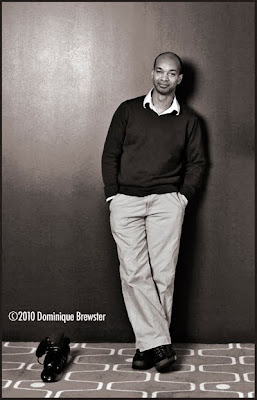Congrats to the Post. I really like this story and told Mark Scheffler on Facebook, adding this was one of those subject areas so anemic to the media body-politik that I don't doubt if there was more viewers would watch.
I certainly have done, 2x, and would like to see more.
Structurally its use of narrative and expositions until the character appears in vision mimics flashback (Cinema). In broadcast terms known as the oov - out of vision shot in which you hear your subject, but very rarely see synch (talking to camera)
But it's how you use it in a cinematographic frame work that separates the two.
The temporality and duration of shots contribute to an aesthetic more along the lines of direct cinema - the observational doc, rather than any videojournalism semiotic we could posit - and believe me they exist.
But this is a moot point between the two genres as there are significant differences in intention when film makers of the two set out to work. And the effect is accomplished in the state of being (dasein) immersed in this episodic narrative - a day in the life of...
As often in films of this kind there is no definitive conclusion to the arc, though here the characters mournful state of not wanting to go back and door exiting is a good anchor to close on. That said the words "I don't want to go back home" constitute a hanging shot.
You can almost hear the D minor chords and the slow zoom.
There's a lot of credible 'vantage camera work'. The train scenes takes a lot of steely work from the film makers to maintain composure and tone to affect the viewer.
The shots, while some may have been directed, they are unconstrained enough to attract the trademark, realism e.g. being sandwiched in the train, then isolated, yet with a camera running with only a few commuters enquiring along the lines of who is this man.
Subject- driven narratives
This in part comes from the subject, but it's also thumbs up towards the film makers. Your success is your subject's success at telling a story.
Most difficult bit about film maker is often the thick skin to knowingly invade others' space that they may question. In the UK you'd need unknown number of permits, and then release forms for those who believe their inclusion is more than decorative.
Equally the arc seamlessly compressed time. You shouldn't notice it and you don't, unless you consider the non-diegetic slates, which are organically used very well. Often a flaw in VJ pieces done not so well is the inability to play with psychological time.
Its affective enough as a stand alone, but I'd hedge network TV would equally find this strong yet also seek to claim some of the threads mentioned. e.g. living in a room with others. That is the dark side is alluded to, the exploitative circumstances they (other nationalities) live under asks to be followed up.
Yes, this was NOT produced for network TV - an other (sic) semiotic medium.
And therein is the window for a more expansive piece. This is a rich seam which deserves a wider canvas. That said on its own it ticks a number of considerable boxes.
As such, this manner of deconstruction becomes an exercise in film discourse for the viewer - as they'll simply enjoy it, sod whatever I say.
But like some stuffed up suit, to understand VJ it doesn't go amiss if you can make some sense of the visual language. Remember there is a fundamental difference between cinematography and a strictly event-driven news piece.
Postscript
Last moth I was a juror for the UK's highest awards for television; the year before a judge of the International VideoJournalism Awards in Berlin. We don't see enough personalised stories which tackle anguish, displacement, etc within the innovation of news (RTS) / videojournalism
In 1997 I lead as series producer and director a team from Ghana to South Africa executive produced by CNN's head of Africa, Edward Boateng, called the United States of Africa. In 6 days we put together 6 one hour programmes. One of the issues we came by was Ghanaians, some grads, with PhDs living rough in Hillbrow - 15 to a room.
They eked a living selling produce. We followed them from 4.30 in the morning from within their rooms to Soweto to film them and then back on their stalls. It was pretty disheartening. It was filmed as a straight linear narrative. I then sent a VJ team to town to ask how endemic this was and how indigenous South Africans felt.
Though we filmed on DSR200s we dumped all the tape on D6s, so apart from that which I digitised at the time, I'll have to investigate how to pull of the data. Because it's worth a follow up some time.

















